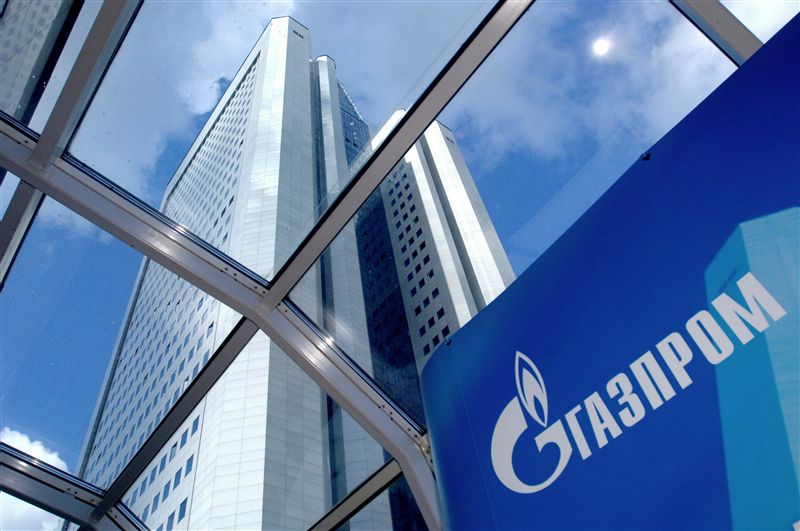
Russian Companies Map out International Expansion at St. Petersburg Economic Forum
Publication: Eurasia Daily Monitor Volume: 9 Issue: 120
By:

Russian state-controlled companies, Gazprom and Rosneft, mapped out far-reaching expansion programs in bilateral deals with Western companies at the St. Petersburg International Economic Forum on June 21-22. Russian President Vladimir Putin coordinated the overall process (Interfax, June 21 – 23; Kommersant, June 22).
In parallel with mineral exploration and production agreements, Gazprom is pioneering a new type of vertical integration at the expense of European companies and consumers. Under this new concept, Gazprom seeks part-ownership of natural gas-based electrical power plants in Europe, in exchange for gas supplies from Gazprom’s fields via Gazprom pipelines. Gazprom seeks the status of “exclusive supplier” of gas to such power plants under these deals, thereby ruling out competition. If this implies (as it seems) price fixing as opposed to market pricing, it follows that European companies acquiescing in such terms would expect to pass on the onerous cost burden to their consumers.
At the St. Petersburg Forum, Gazprom advanced discussions on this type of deal with Electricite de France (EDF, signing a memorandum of understanding), Italian ENEL (Ente Nazionale per l’Energia Elettrica), and Danish DONG (Dansk Olie og Naturgas) – national champions majority-owned by their respective governments. The ongoing discussions focus on generating capacities owned by these companies in EU territory outside their home countries.
Under the Gazprom-EDF memorandum, the two companies would jointly acquire existing European gas-based electrical power plants and build new such plants in Europe. The two companies would hold such plants in parity ownership, with Gazprom as exclusive supplier. This concept resembles in broad outline that proposed by Gazprom to German RWE (Rheinisch-Westfaelisches Elektrizitaetswerk) in 2011. Those negotiations eventually broke down. Meanwhile, Bavaria’s Land government has entered into discussions on such an agreement with Gazprom (Energate, June 20; www.gazprom.ru, June 22).
On natural gas exploration and production, Gazprom signed or advanced agreements of intent with German Wintershall and Italian state-dominated ENI (Ente Nazionale Idrocarburi). These involve asymmetrical inter-dependencies, inherently weighted in the resource owner’s favor. In Wintershall’s case, dependency extends beyond the energy sector to industrial production. Wintershall operates in large part as a gas procurement subsidiary for BASF (Badische Anilin- & Soda-Fabrik), worldwide leading producer of industrial chemicals.
These proposals envisage Wintershall acquiring 25-percent stakes in the fourth and fifth sections of the Achimovskoye gas development project (an extension of the west-Siberian Urengoi field). Achimovskoye is a source of the Gazprom-led Nord Stream supply project, on which Wintershall has become heavily dependent. In exchange for access to that Siberian field, Wintershall would cede 50-percent stakes in its gas fields in the British and Dutch sectors of the North Sea. One such field, identified as F16-A, is expected to produce 2 billion cubic meters (bcm) of gas annually, to be pumped through an existing pipeline to the Dutch shore near Groningen and onward into Nederlands Gasunie’s pipeline grid. The other Wintershall assets to be ceded are not publicly known thus far. The swap with Gazprom is expected to be finalized in the course of this year.
President Putin and Gazprom are negotiating a reconfiguration of the Shtokman gas project with French Total and Norwegian Statoil. These operate as service providers in that Barents Sea project. Shell is also poised to join.
In the oil exploration sector, state-owned Rosneft is moving forward on cross-investment agreements with Norway’s Statoil and Italian ENI. With Statoil, the deal envisages Rosneft acquiring a 33-percent stake in a Norwegian offshore field, in exchange for hard-to-access oil and gas deposits in West Siberia and Stavropol Territory. An agreement with ENI envisages creating a Rosneft-ENI joint venture for oil exploration in Russia’s sectors of the Barents Sea and Black Sea, in return for ENI ceding oil-refining capacities in Europe and part-ownership of oil and gas deposits in North Africa to Rosneft (those ENI assets are not publicly identified thus far).
Additionally, Rosneft is negotiating with ExxonMobil about taking over a 20 percent stake in Iraq’s Exxon-operated West Qurna-1 oilfield. This seems to be part of a wider deal whereby ExxonMobil stands to gain access to the Russian Arctic in return for Rosneft gaining access to Exxon projects in North America. In parallel with the West Qurna-1 proposal, Rosneft seeks a stake in West-Qurna-2. Statoil has relinquished its own stake in West-Qurna-2. Statoil’s partner there, Russian Lukoil, now offers that stake to Rosneft, following Rosneft’s proposal (Kommersant, June 22).
If those transactions go through, the Russian state will have acquired stakes in two supergiant Iraqi oilfields. Whether the government in Baghdad consents or not to these transactions will test US influence in Iraq and will count toward an overall balance sheet of US policy there since 2003.
President Putin received the top executives of those Western companies in St. Petersburg on June 21, after subjecting them to a four-hour wait at the door. Putin thus underscored the Kremlin’s superior bargaining position and potential to play on competition among Western companies over access to resources. In his remarks to those executives and to the Economic Forum’s plenum, Putin noted that the proposed agreements follow Russia’s strategy of asset swaps and cross-investments with Western companies (Interfax, June 21, 22).
Asset swaps and cross-investments are favorite Kremlin methods to increase Europe’s dependence on Russian oil and gas, hollow out European policies in this regard, raid the Europeans’ own supply bases within and outside Europe, and gain influence on political decision-making through interest groups tied to Russian energy supplies.




